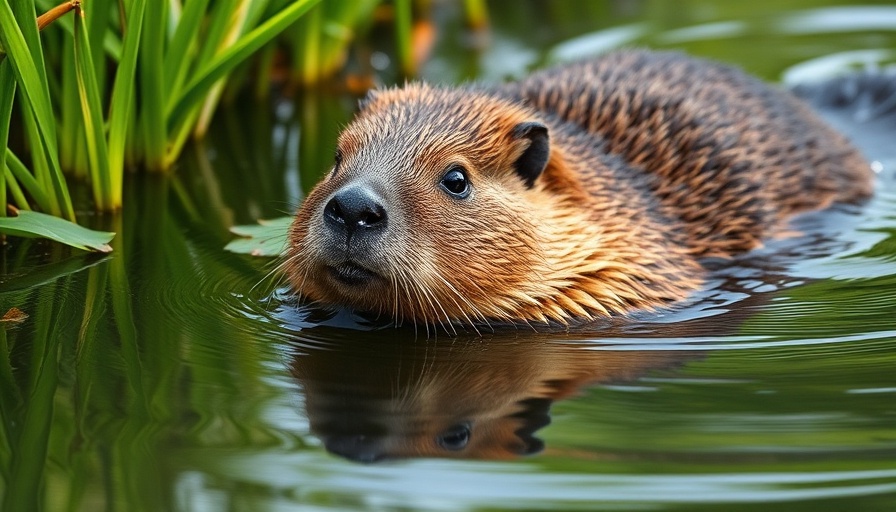
A Historic Move: Beavers Return to England's Waters
In an exciting program launched as part of a broader effort to restore the United Kingdom's biodiversity, England is set to reintroduce beavers into its waterways after centuries of absence. Once hunted to extinction in the 16th century for their meat, fur, and castor sacs, these vital 'ecosystem engineers' will soon reclaim their place in the English landscape, promising to revitalize degraded environments and significantly enhance the natural habitat.
The Ecological Impact of Beavers
Beavers are often regarded as keystone species due to their remarkable ability to reshape ecosystems. By building dams, they create wetlands that provide homes for numerous wildlife species and help mitigate issues like flooding and droughts. Natural England emphasizes that the beaver's capacity to transform landscapes is integral for restoring rivers, wetlands, and halting biodiversity loss, which aligns with the UK's national biodiversity targets.
Careful Management Amidst Controversy
The reintroduction of beavers comes with significant planning and management considerations, especially given the concerns from agricultural stakeholders who fear potential land impact. Under the newly announced program, beavers will be closely monitored with a specific emphasis on mitigating adverse effects on farming. As a last resort, local authorities will retain the option for 'lethal control' should beavers interfere with agricultural practices.
A Leap Forward for Conservation
This initiative is a major milestone in the UK government’s commitment to wildlife restoration. Environment Minister Mary Creagh has assured that this carefully regulated rewilding effort is essential for both biodiversity and the environment. While some landowners express concerns about cohabitation, the program includes provisions for collaboration and support aimed at fostering a mutual relationship between farmers and nature.
International Perspective and Future Considerations
As England joins other European nations like France and Germany in their rewilding efforts, experts like Dr. Roisin Campbell-Palmer from Beaver Trust believe the wider recognition of beavers’ significance could pave the way for a national strategy. The initiative not only reflects a shift in appreciation for natural biodiversity but also highlights the urgent need for practical, nature-based solutions in combatting climate change.
A Collaborative Future
Looking ahead, the first release of beavers is anticipated at the Purbeck Heaths National Nature Reserve, where they are expected to increase biodiversity and restore lost wetland habitats. The initiative has been developed through collaboration with key stakeholders, ensuring that local community needs are taken into account. The road to beaver reintroduction may be complex, but with a balanced and collaborative approach, the potential benefits for the environment and agricultural communities could be immense.
Take Action for Local Wildlife
The reintroduction of beavers to England’s waterways serves as a powerful reminder of the role we all can play in supporting biodiversity. As communities, we can advocate for responsible wildlife management and engage in conversations about how we can coexist with nature. Encouraging local conservation efforts, supporting rewilding initiatives, and participating in community programs can make a significant difference in protecting our ecosystems.
 Add Row
Add Row  Add
Add 




Write A Comment